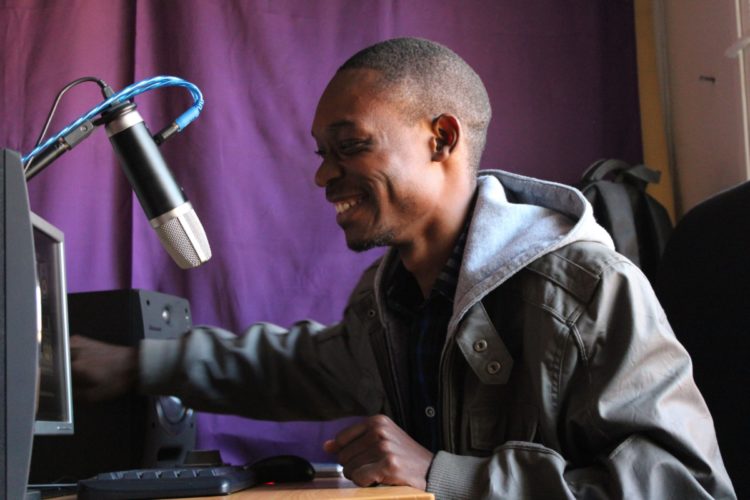In 2022, Farm Radio radio partners broadcast more than 10,750 minutes of programming on COVID-19 —and that just includes programs broadcast with Farm Radio’s support. Many partners in Farm Radio’s network have been regularly broadcasting about COVID-19 and COVID-19 vaccines over the past few years.
From June to October, 2022, 215 radio stations in 16 countries agreed to join a campaign promoting COVID-19 vaccines, supported by Farm Radio and with funds from Global Affairs Canada.
These radio stations participated in a training and design process that included both distance and face-to-face components and enabled them to plan the campaign by using Farm Radio resources and their own knowledge of their listeners’ needs. Then they produced radio spots and interview segments each week for an average of 10 weeks (some broadcast for eight weeks, and others for 12).
The campaign used Farm Radio’s Script+ approach, relying on Farm Radio’s resources and radio stations’ enthusiasm to participate to achieve a huge impact in terms of the number of listeners. With the Script+ approach, participating radio stations are not paid for airtime, but receive an honorarium for their participation.
The campaign had a great impact in many places. Farm Radio conducted a survey in eight countries—Zambia, Uganda, Tanzania, Nigeria, Mozambique, Malawi, Kenya, and Ghana—with the support of Geopoll. The survey measured the impact of the COVID-19 vaccine confidence campaigns. Awareness of the campaign was strong among respondents within the stations’ coverage area: 71% of respondents in Ghana said they were aware of the campaign, compared to 79% in Malawi and more than 80% in the other six countries.
It should be noted that the survey found that the biggest obstacle to getting the COVID-19 vaccine was fear of side effects. But it also showed that most vaccinated people encourage others to do so, particularly family members.
Participating radio stations also helped to survey listeners. Each week, they promoted Farm Radio’s Uliza poll, which invites listeners to call a number and respond to survey questions on their mobile phone. Listeners responded to both multiple choice questions and a few open-ended questions that allowed them to share their opinions.
The Uliza poll was available in 81 local languages in 15 countries and more than 48,000 people responded. The highest response was from Tanzania (34% of total responses), followed by Ghana, Uganda, and DRC. The majority of respondents (92%) were under 49 years of age and 72% were men.
One-third of respondents said they know someone who has died from COVID-19 or been seriously sick with COVID-19.
More than half (54.8%) said they are vaccinated, and an additional one-third (36.2%) said they want to get vaccinated. Only 9% said they are not willing to be vaccinated. More than 70% of respondents in Cote d’Ivoire, Kenya, Togo, and Uganda said they are vaccinated, compared to more than 60% of respondents in Ethiopia, Ghana, Malawi, Mozambique, and Zambia. Nigeria had the highest rate of people who said they don’t want to be vaccinated: 26%.
According to Uliza poll respondents, the biggest obstacles to being vaccinated are: lack of vaccine availability, transportation, time, and other responsibilities.
For those who don’t want to be vaccinated, the reasons varied, but included the myth that the vaccine is more harmful than COVID-19, the myth that COVID-19 is not a serious threat, and the myth that the vaccine causes sexual problems.
This information is very useful when planning future programming to encourage people to get vaccinated.
Callers also indicated that the most trusted sources of information about COVID-19 are government and international health authorities, family and friends, and local health workers. This is why Farm Radio worked in close collaboration with the World Health Organization to develop resources on COVID-19, and why many of the vaccine confidence campaigns were produced with the support of ministries of health and local health workers.
We hope that you will find this information useful for planning radio programming to encourage more people to get vaccinated. To find all Farm Radio’s radio resources on COVID-19, including radio spots and suggested interview questions, go to: https://scripts.farmradio.fm/radio-resource-packs/covid-19-resources/
Thank you to everyone who participated in this campaign. You helped to encourage more people to get vaccinated and stay safe from COVID-19.

